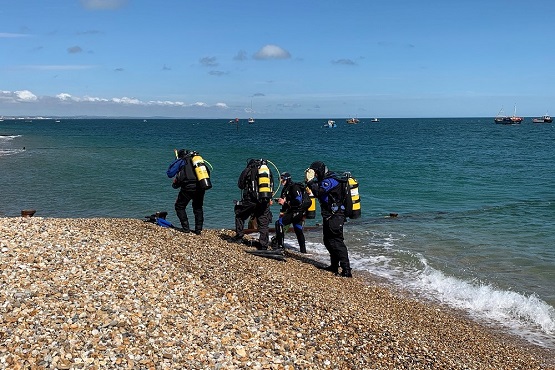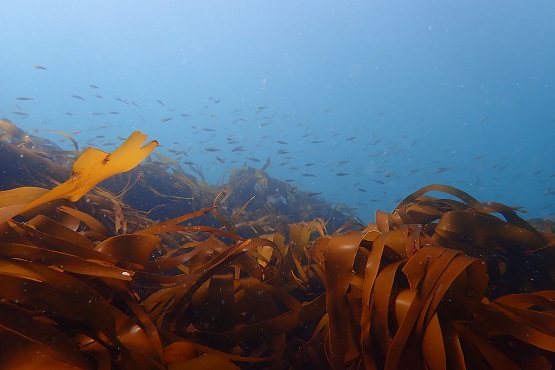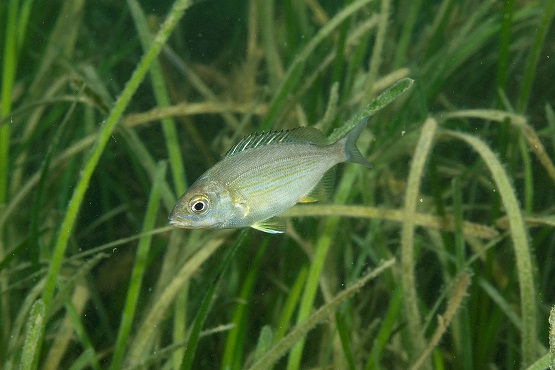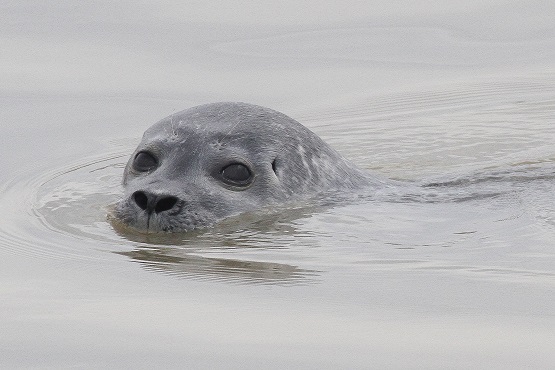A guide to marine conservation in West Sussex
Being in, on or simply near the sea can boost your physical and mental wellbeing. That’s a fact. But what about the impact you have on the coast when you visit?
West Sussex’s shore is characterised by cloud-reflecting lagoons, flower-strewn shingle and undulating kelp forests. If you know where to look, you can see tiny dancing seahorses, nest-building fishes and watercolour-worthy sunset seascapes. It’s a beautiful area. It’s also delicate and vital so it’s no wonder that swathes of it are protected.
The coast here may seem vast and timeless, but please don’t underestimate the effect you can have on it. From picking up litter to educating yourself on the dangers faced by marine ecology, the choices you make on holiday in West Sussex can make a big difference to these precious ecosystems.
This guide shows you how to enjoy and protect West Sussex’s wildlife-rich marine environments, so future generations can experience them in the same or even better condition.
On the sea
There are plenty of opportunities to observe and help preserve West Sussex’s marine environments from the waves. To leave the waters in even better shape than you find them, pick up any litter you see, stay quiet and let the wildlife come to you rather than chasing it.
You could explore the sheltered waters and pretty harbourside villages of Chichester Harbour on foot or bike. There are plenty of footpaths, cycle routes and guided walking tours to choose from. But to get close to the seal and bird colonies that thrive in this Area of Outstanding Natural Beauty, take a boat tour.
Chichester Harbour Conservancy runs seal safaris and bird-watching trips on Solar Heritage, its solar-powered catamaran. The boat is virtually silent so there’s very little disturbance to the wildlife, no exhaust emissions and the lack of a wash means saltmarsh and estuary bank erosion is greatly reduced.
Or, book a private skippered trip on Terror, the Conservancy’s restored Victorian wooden sailing boat. The last open-decked working sail boat from Emsworth’s oyster industry, Terror is run by volunteers and all profits go back into the boat. Your booking will help Terror to continue showing visitors around Chichester Harbour in a sustainable way for years to come.
For a wildlife experience that’s even closer to the water, try one of Fluid Adventure’s kayaking tours. Depending on the time of year, you’re likely to see grey and harbour seals, curlews, redshanks, plovers, herons and oystercatchers.
Under the sea
Scuba divers and snorkelers can discover and help document a fascinating but fragile world beneath the waves just off West Sussex.
Kingmere Marine Conservation Zone, a 47sq km area of protected seabed about 5km off shore, is popular with divers, anglers and marine biologists. This seabed reef is home to starfish, anemones, corals, crabs, lobsters, sharks and oysters. There’s even a ‘paleochannel’, an ancient riverbed full of pebbles and gravel formed when Britain was joined to mainland Europe. But it’s perhaps most famous for the thousands of black bream that breed here every spring. Males carefully excavate open nests on the seabed in the hope of attracting females to attach their eggs to the rock surface and then guard the eggs until they hatch around two weeks later.
Help Our Kelp is one of West Sussex’s most important marine conservation programmes. Kelp forests are among the most productive ecosystems on the planet, and the seabed off Sussex was once home to an enormous one. They’re sanctuaries for species such as common cuttlefish, crustaceans and rare short-snouted seahorses, which bond with their mate by ‘dancing’. These kelp forests are also vital in the fight against climate change; they draw down millions of tonnes of carbon in their vast green fronds, oxygenate the water and reduce wave energy.
Over the last 40 years, changing fishing practices and other factors have drastically reduced the kelp forest that once grew all along the Sussex shoreline. Now, only small pockets of it remain, but it is being regenerated.
You can support Help Our Kelp and other marine projects by donning your snorkel or scuba kit and helping Seasearch collect vital baseline data. And if you spot any ghost gear (old fishing gear), Sussex Wildlife Trust encourages you to report it to Ghost Fishing UK.
Beside the sea
There are plenty of ways to spot and support marine wildlife in West Sussex without getting your feet wet.
Explore the network of footpath’s around Pagham Harbour Local Nature Reserve. Its saltmarsh, shingle, tidal mudflats and shallow lagoons are home to rare lagoon shrimp, Defolin’s lagoon snail and seagrass beds, but the wildlife above the water is just as striking. Pagham is a great place for twitching all year round but the spring and autumn migrations bring a particularly spectacular variety of birds. Some of the best views are of the skies above: watch terns and black-headed gulls hover then plunge into the water to catch fish. The sunsets, mirrored in the calm lagoon waters below, are unforgettable, too.
To find out all about West Sussex’s marine residents, head to Mulberry Marine Experiences, in Selsey. Led by a qualified SSI Marine Ecology Instructor and suitable for all ages, their Marine Life Walks introduce you to the lives, challenges and changes taking place in the intriguing intertidal zone. You’ll never view a beach walk in the same way again! To learn more about marine ecology, check out their SSI-certified courses. Mulberry also run bimonthly on shore, in and under the water cleans that help deepen understanding of the local rubbish issue by meticulously recording data about the litter picked. To really immerse yourself in West Sussex’s coast, check out Mulberry’s themed weekend itinerary combining marine ecology with fishing heritage and mountain biking in the South Downs.
A simple but effective way to leave West Sussex’s marine areas in an even better condition than you find them is to join a beach clean. Sussex Wildlife Trust, Marine Conservation Society and Surfers Against Sewage regularly organise small group beach cleans along the West Sussex coast. Keep an eye on their websites for the latest picks.
These events are a great way to meet friendly West Sussex locals too, so you can find out where to get sustainable fish ’n’ chips while you battle plastic pollution.




